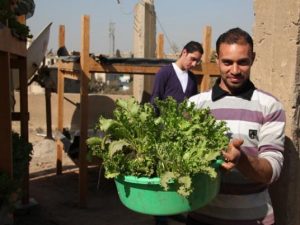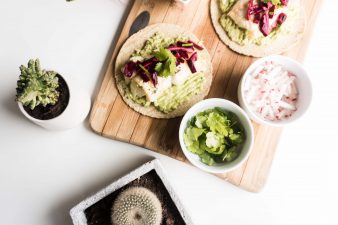 Seferihisar, a city on Turkey’s western Aegean coast, is part of Cittaslow, an international movement founded to promote the Slow Food movement around the world.
Seferihisar, a city on Turkey’s western Aegean coast, is part of Cittaslow, an international movement founded to promote the Slow Food movement around the world.
Agriculture is the economic foundation of Seferihisar. The region is famous around Turkey for its juicy satsumas and mandarin oranges, while olives and vineyards also comprise a significant portion of the local economy. But in the last decade, the government has passed a series of legislation favoring the homogeneous agriculture practiced by large-scale corporations and discouraging the local agriculture that has traditionally sustained communities such as Seferihisar. Since becoming a “slow city” several years ago, however, farmers in Seferihisar are finding ways to keep their traditional ways of agriculture alive.
Government pressure to homogenize crops
Like many small-scale farmers in Turkey, Seferihisar’s farmers took a hit in 2006 when Turkish Parliament passed Law No. 5553.
Patterned on European Union seed laws, Law 5553 forced all commercial farmers to only use seeds that had been tested, registered, and certified by the state. The state, in turn, pledged to only certify seeds of sufficiently “high quality”, defining quality seeds as those with the highest productivity and least diversity of products. But the seeds used in traditional agriculture are constantly changing and exhibiting variant characteristics from harvest to harvest. In fact, that variance is how most small-scale farmers define the quality of a seed.
Law 5553 did, however, allow farmers to continue using non-certified seeds for their own purposes and trading any seeds they wished with other farmers, so long as the products from the seeds were never sold. This leaves an opportunity for the rebirth of a truly traditional agricultural system in the region, one based on bartering and local diversity.
Fulfilling its role as the country’s only slow city, Seferihisar held a Seed Festival in February 2011 that brought together seed producers from all around the region. More than one hundred seed species were traded, and farmers’ cooperatives and organizations from various locales set up stands to display their products. Most importantly, farmers from various regions were able to communicate and establish relationships, ensuring future collaborations like this will continue.
The tasty side of slow food
Another project Seferihisar has taken on since becoming a slow city was a seven-day youth exchange called “Cook Your Future”. Thirty-six participants from Italy, Denmark, and Romania came to Seferihisar, also in February 2011, to study, practice, and eat the results of slow food agriculture.
At its root, the Slow Food movement is an effort to make humans less alienated from the food they consume, and to ensure that food is as healthy as it can be — both for our bodies and for our communities. The 36 young people who came to Seferihisar for “Cook Your Future” seem to understand that principle better than their governments, at least according to their mission statement:
Fast food chains which increasingly capture us, young people, have become threatening for Europe’s future. We aim at breaking the chains growing day by day and promoting healty and slow food. We intend to remind people of cultural cuisine to be forgotten and spread it to a wider audience in cooperation with our partners.
Cittaslow is spreading throughout the world, and Slow Food projects are taking off in places far from the movement’s origins, such as Egypt and Beirut. Perhaps slow cities will one day become the norm and not the exception — even in countries where, these days, the government seems determined to expunge local farmers in favor of corporations.
Read more about the slow food movement in the Middle East:
Egypt To Get 3% Of Africa’s Thousand Slow Food Gardens
Stress Is Making Us Fat: New Study. Time To Start Eating Slow Food?
Slow Food Movement Is Active In Beirut
Image via Cittaslow Seferihisar




Hi, all is going nicely here and ofcourse every one is sharing facts, that’s really fine, keep up writing.
Hello.
I’m here to ask you a fovor. 🙂
NOw, I’m looking for pictures about slow city because I’m publishg an English textbook. So your picutre would be very good resourec for my passage. So I’d like you to give the picture above to me.
Tanks for reading my message!
Please let me know whether I could use this picture or not.